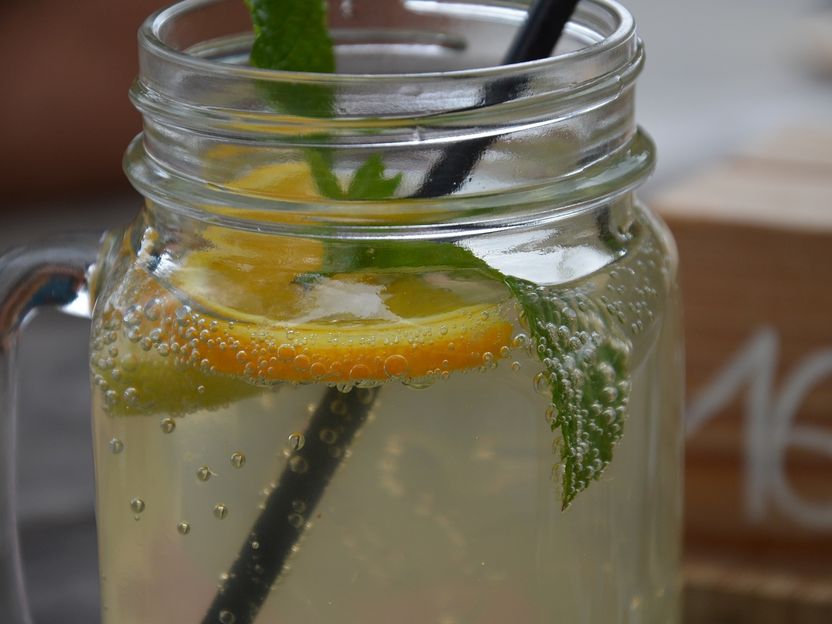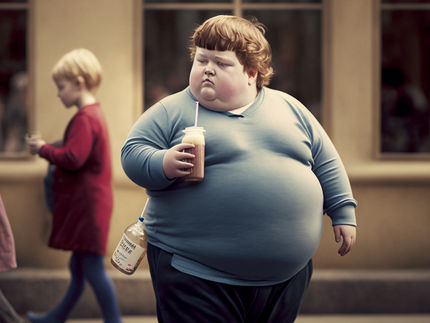British limo tax works: Sugar content in beverages drops by 35 percent
Advertisement
Since the introduction of a tax on soft drinks in Great Britain, British beverage manufacturers have significantly reduced the sugar content of their products. This is the result of a study by the University of Oxford. According to this, so-called soft drinks in 2015 still contained an average of 4.4 grams of sugar per 100 millilitres. In 2019, it was only 2.9 grams per 100 milliliters - a drop of about 35 percent. The per capita consumption of sugar via beverages has also fallen by 30 percent or 4.6 grams per day during this period. Overall, according to the researchers, sales of medium and heavy sweetened drinks covered by the UK levy have fallen by 50 per cent. In contrast, sales of water and sugar-free and low-sugar beverages not covered by the levy increased by 40 percent.

Symbol image
Gelly/ Pixabay
"The tax on soft drinks in Britain has caused a sugar crash on the drinks shelf. In Germany, on the other hand, the sugar bomb is still being followed by the sugar bomb. Even the strategy of voluntary sugar reduction by the Minister of Food, Julia Klöckner, has not changed this," explained Luise Molling of the consumer organisation foodwatch. Germany lags far behind in international comparison - in addition to Great Britain, several countries are now actively combating malnutrition, obesity and diabetes with tax incentives, including Ireland, Portugal, Estonia, Belgium, Norway, Finland and France. "It's high time Julia took Klöckner Beverage Company to task. The Minister of Food must finally put the health of the citizens above the interests of the food lobby: We also need a manufacturer's levy on hyperglycaemic drinks in Germany, and in return fruit and vegetables should be exempt from VAT," says Luise Molling.
foodwatch criticized, however, that the British lemonade tax has so far left out sweeteners. As a result, some manufacturers would replace sugar with sweeteners. However, recipe changes should be aimed at reducing not only the sugar content but also the sweet taste in general, in order to counteract the general sweetness habituation, especially among children and adolescents. foodwatch therefore demanded that a producer levy in Germany - similar to that in France - should also include sweetened beverages.
The lemonade tax passed in the UK in March 2016 and introduced in 2018 provides for levies on manufacturers of beverages containing more than five grams of sugar per 100 millilitres. A higher levy will be charged for more than eight grams. As early as 2018, the British market leader Coca-Cola reduced the sugar content of its drinks Fanta and Sprite below the five-gram mark (Fanta from 6.9 to 4.6 grams and Sprite from 6.6 to 3.3 grams). In Germany, Fanta still contains more than nine grams of sugar and Sprite more than eight grams.
According to a foodwatch market study, more than every second soft drink in Germany is hyperglycemic. According to the study, 345 out of a total of 600 beverages examined (58 percent) contain more than five grams of sugar per 100 milliliters - that is more than four sugar cubes per 250-millimeter glass. This means that the share of sugary drinks on the German market has remained virtually unchanged since foodwatch conducted its first market study in 2016. At that time, 59 percent of beverages contained more than five grams of sugar per 100 milliliters.
Overweight and obesity (adiposity) in both children and adults has increased dramatically in recent decades. Obesity is now considered to be the fastest growing health problem. The World Health Organization (WHO) and the Organization for Economic Cooperation and Development (OECD) speak of a global "obesity epidemic" in this context. The WHO describes sugar-containing drinks as "one of the major causes". Consumption of these drinks has been shown to promote obesity and type 2 diabetes and has been linked to an increased risk of heart attack
Note: This article has been translated using a computer system without human intervention. LUMITOS offers these automatic translations to present a wider range of current news. Since this article has been translated with automatic translation, it is possible that it contains errors in vocabulary, syntax or grammar. The original article in German can be found here.























































